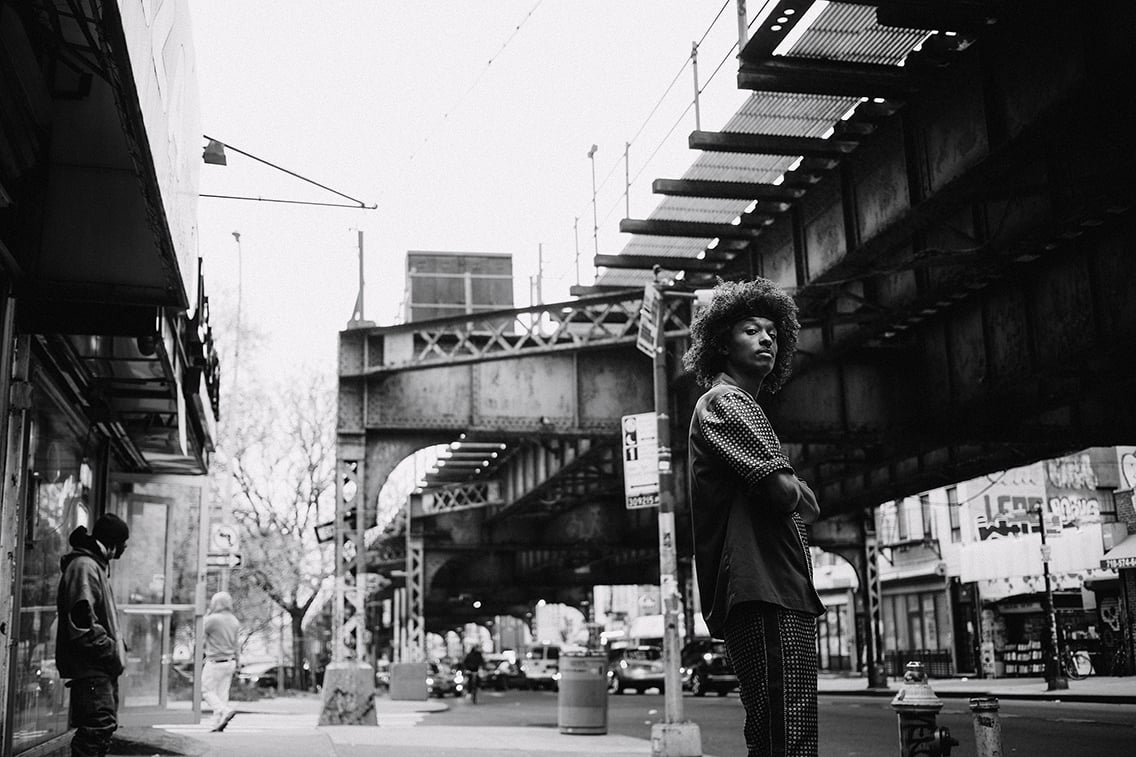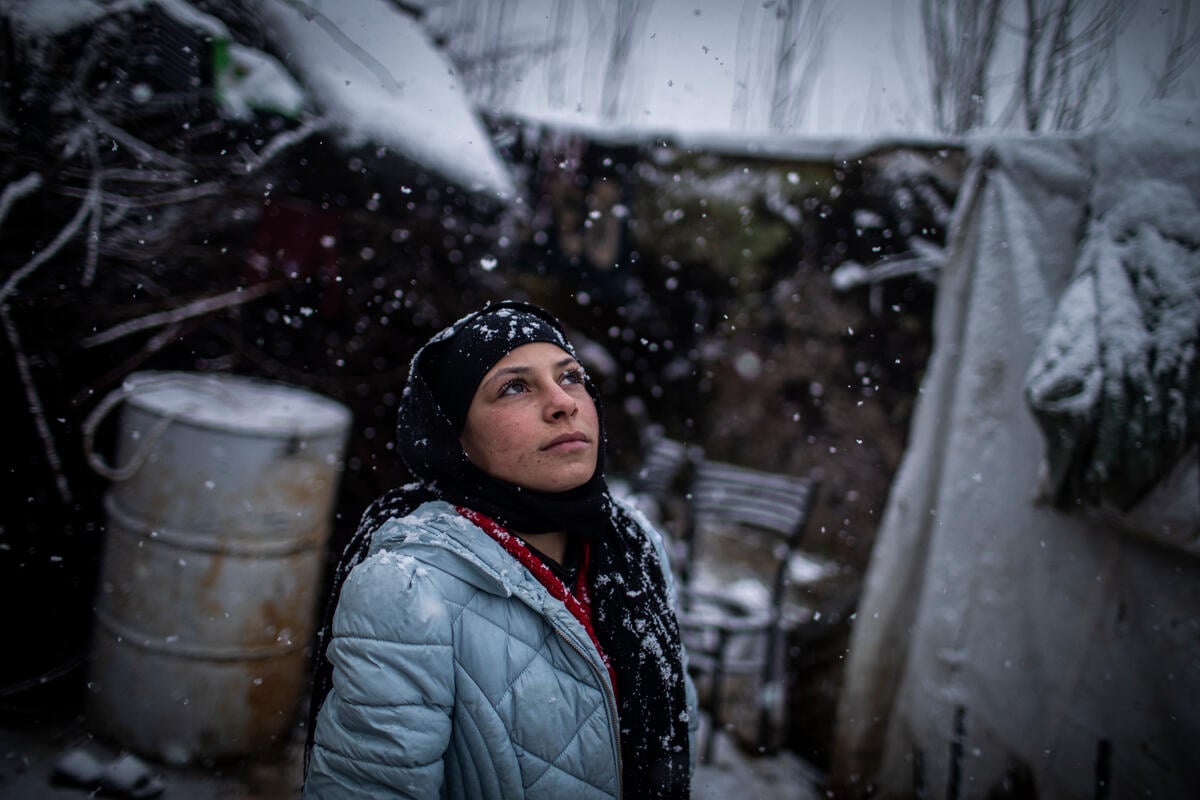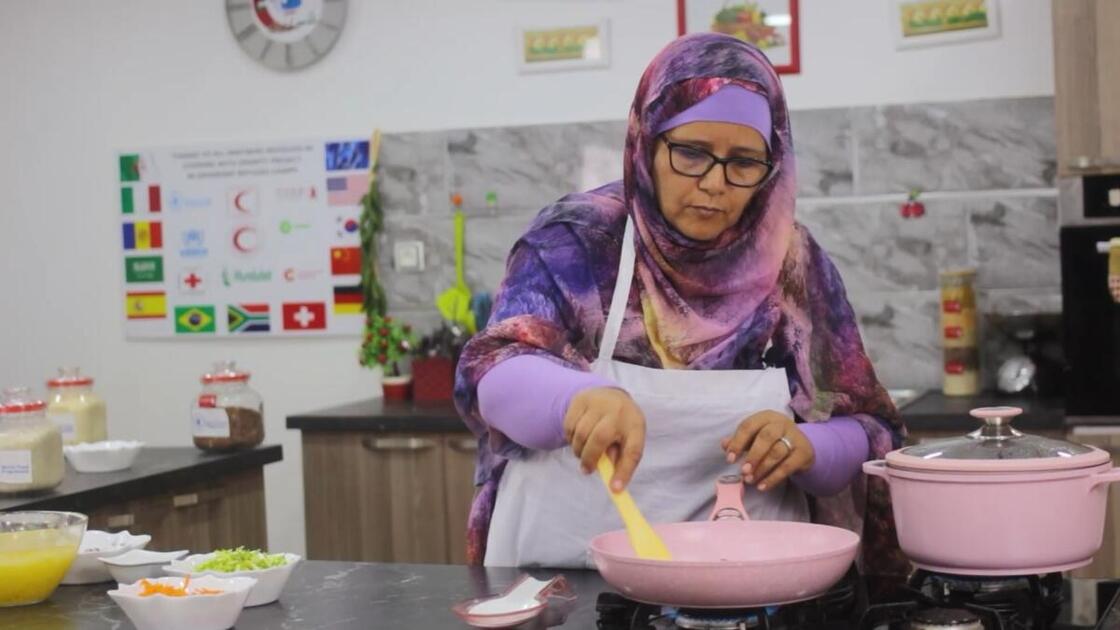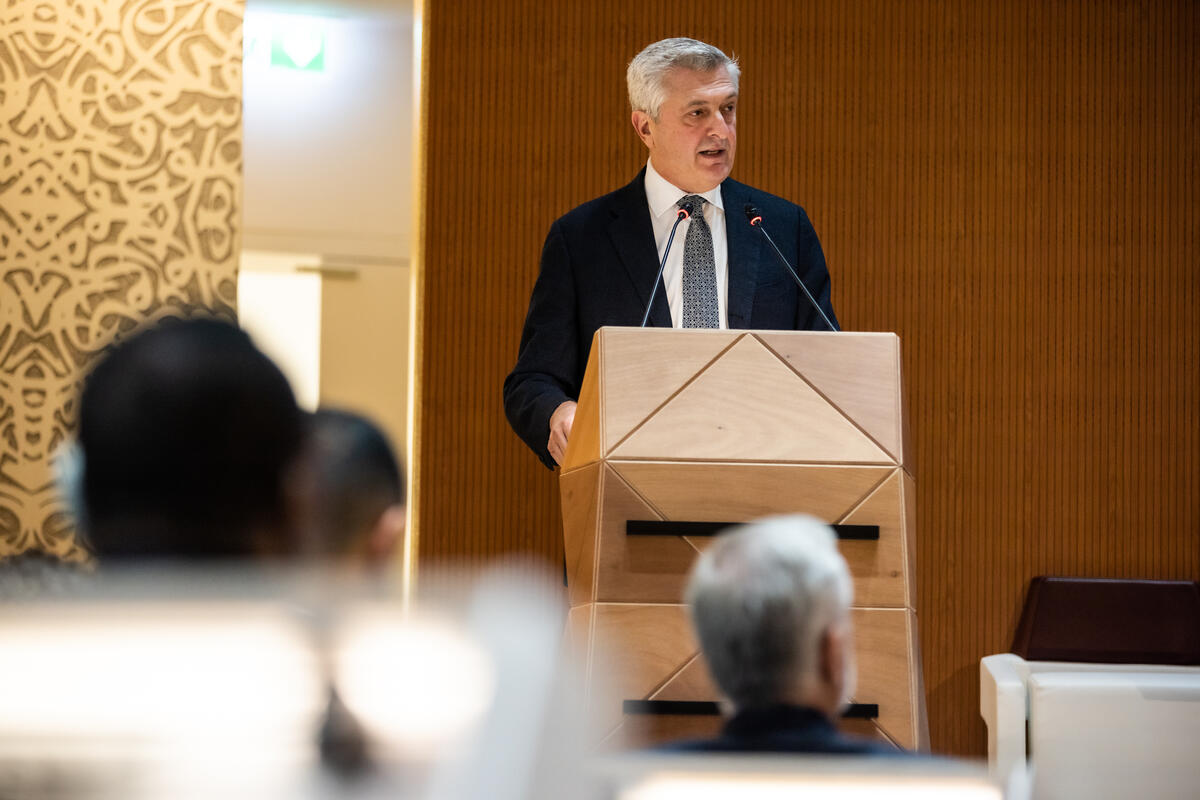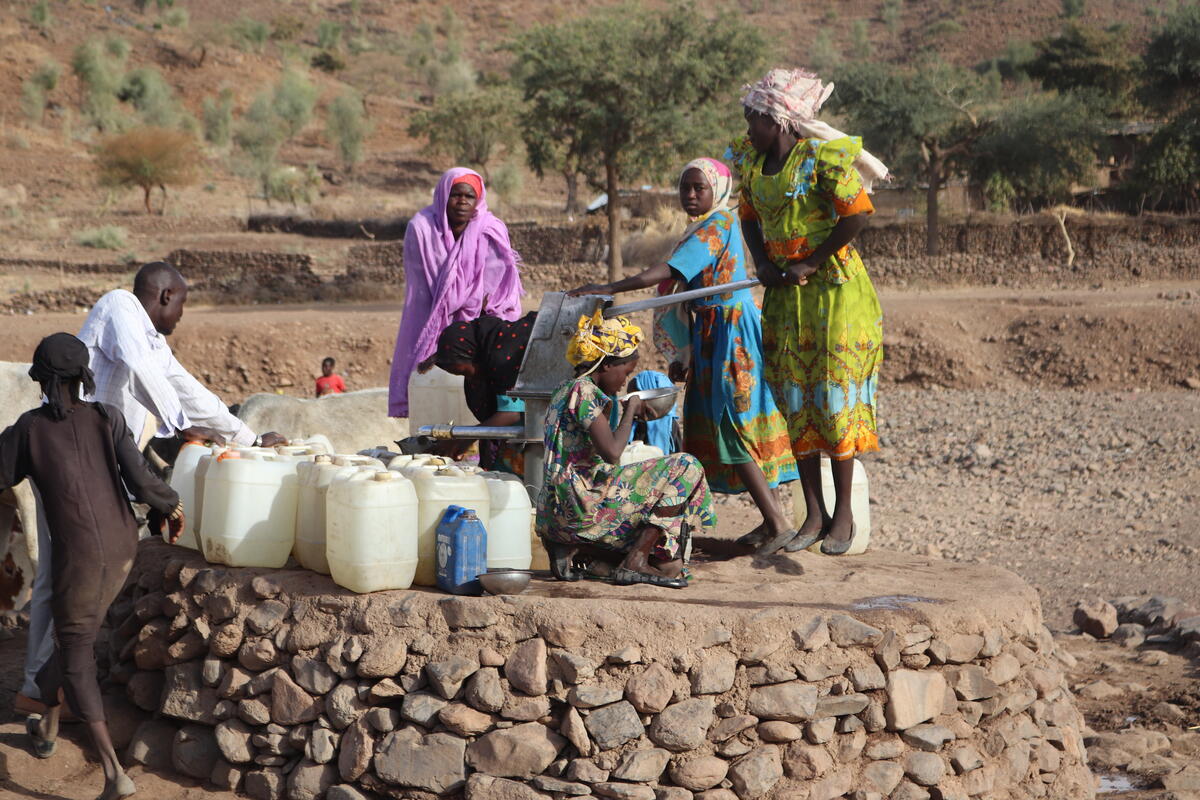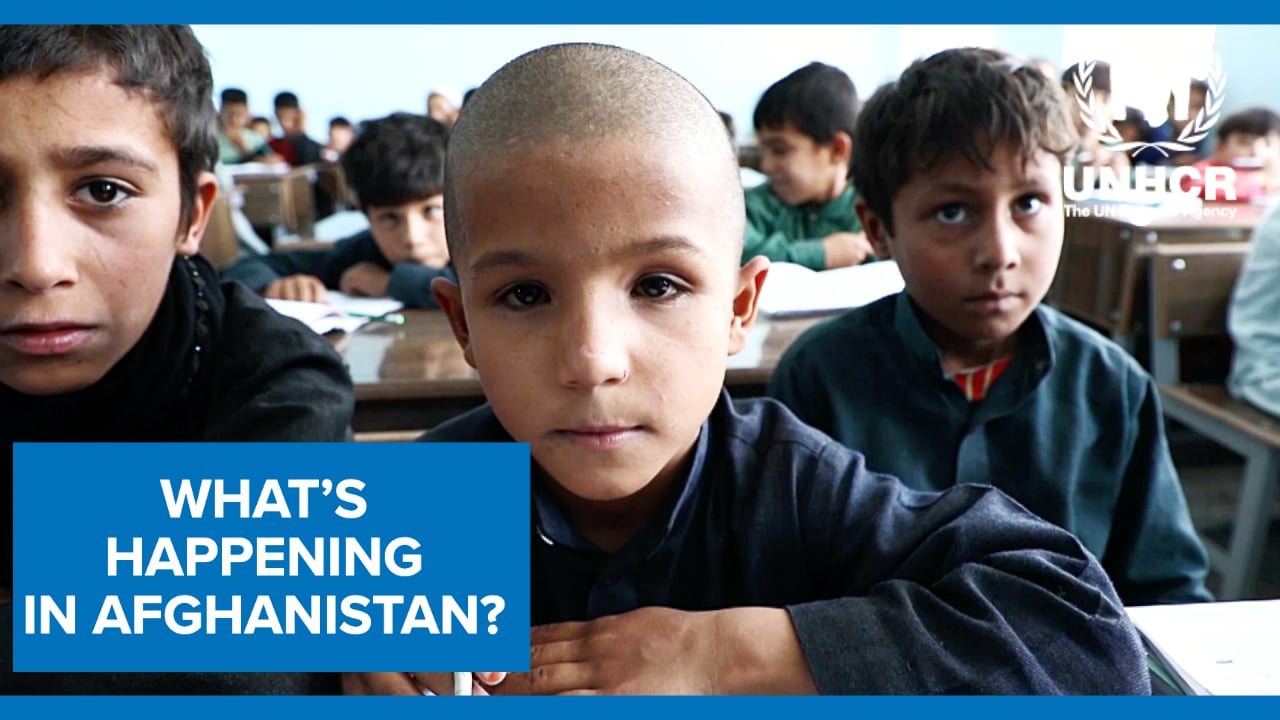Artist nurtures creativity through online community of women refugees
Artist nurtures creativity through online community of women refugees

When UK-based artist Salma Zulfiqar thinks about encouraging refugee women through her ARTconnects project, her mind turns to a young woman who attended her classes last year.
During her first online class, Tasneem barely spoke. The 21-year-old fled Syria in 2013 and since then she has lived in Za’atari refugee camp in Jordan.
“In the first session, she just drew with a pen or a pencil … As we went along, she created a beautiful image of her situation in COVID, of a girl staring at a goldfish bowl,” said Salma. “She was one of the quieter ones, but she flourished and blossomed.”
Salma started ARTconnects in 2017 to promote social cohesion, tolerance and wellbeing and to bring together refugees, asylum-seekers and other vulnerable people. She taught in-person art therapy workshops all over the UK, and in other countries, until the coronavirus pandemic made travel impossible.
After she moved the project online last year, UNHCR, the UN Refugee Agency, joined one of the early Zoom sessions. The shift online opened the workshop up to refugee women and girls from countries as diverse as Bangladesh, Ethiopia, Greece, Iraq, Niger, the United States and Yemen. At a time when many are feeling isolated, the participants have formed an unusual community, sharing their experiences during lockdown, as well as their paintings, poetry and music.
Salma said moving the workshops online had helped realize some of the project’s aims. “[It] meant that we can connect people with different cultures around the world to promote cohesion and learning.”
Each workshop focuses on a theme which is introduced by Salma at the start of the session. After learning about the topic, the women are encouraged to share their feelings and talk about how they connect to it on a personal level. Salma then helps them to create related artworks, which they later share and discuss with the group. Key themes over the last year have included COVID-19, mental health, racism, and inequality. Solidarity is an overarching theme.
"For me it was like therapy."
Tasneem said the sessions helped her to understand that she was not alone.
“It was really fantastic to feel like you could share your problems with another person who you have never met before,” she said. “For me, it was like therapy.”
A film that flowed from the project, In Solidarity; The Migration Blanket, recently won best animated short at the Berlin Film Festival. It features a patchwork of paintings created by the girls and women during the sessions, many of them representing both isolation and solidarity during the pandemic. The result is a powerful, and colourful artwork made of individual pieces.

The film is due to tour internationally later this year, with the aim of influencing public opinions about refugees, as well the policies affecting their reception and treatment.
Salma’s vision for ARTconnects stems from her long creative career and her own background growing up in Britain’s multicultural second city of Birmingham.
"I can give back."
“As a woman from Pakistani heritage who grew up in an inner-city area of Birmingham, there were few opportunities for us. Through ARTconnects I can give back and create those opportunities for other girls and women to shine and become leaders in their own right.

“Every woman has the possibility to be a leader,” she added. “I try and encourage them and get them involved in events … and make sure they have an opportunity to speak.”
UNHCR recently warned that the COVID-19 pandemic is taking an especially heavy toll on the lives and rights of refugee women and girls. Worsening poverty has driven up tensions in homes and increased their risk of gender-based violence and forced marriages. The pandemic has also reduced access to education for 90 percent of refugee children, with older girls particularly at risk of dropping out permanently.
For Tasneem, creating art during the workshops helped her overcome last year’s challenges and move towards a brighter future. After studying translation as part of UNHCR’s DAFI scholarship programme, she now works as a translator for the refugee agency itself.
Salma plans to continue running the workshops online, even when more travel and in-person meetings are permitted. She wants to bring the project to a wider audience and use the artwork created during the sessions to help change negative perceptions of refugees.
For the moment though, she looks back on the last year with pride.
“What we have achieved so far has been incredible under the circumstances and despite the challenges.”



